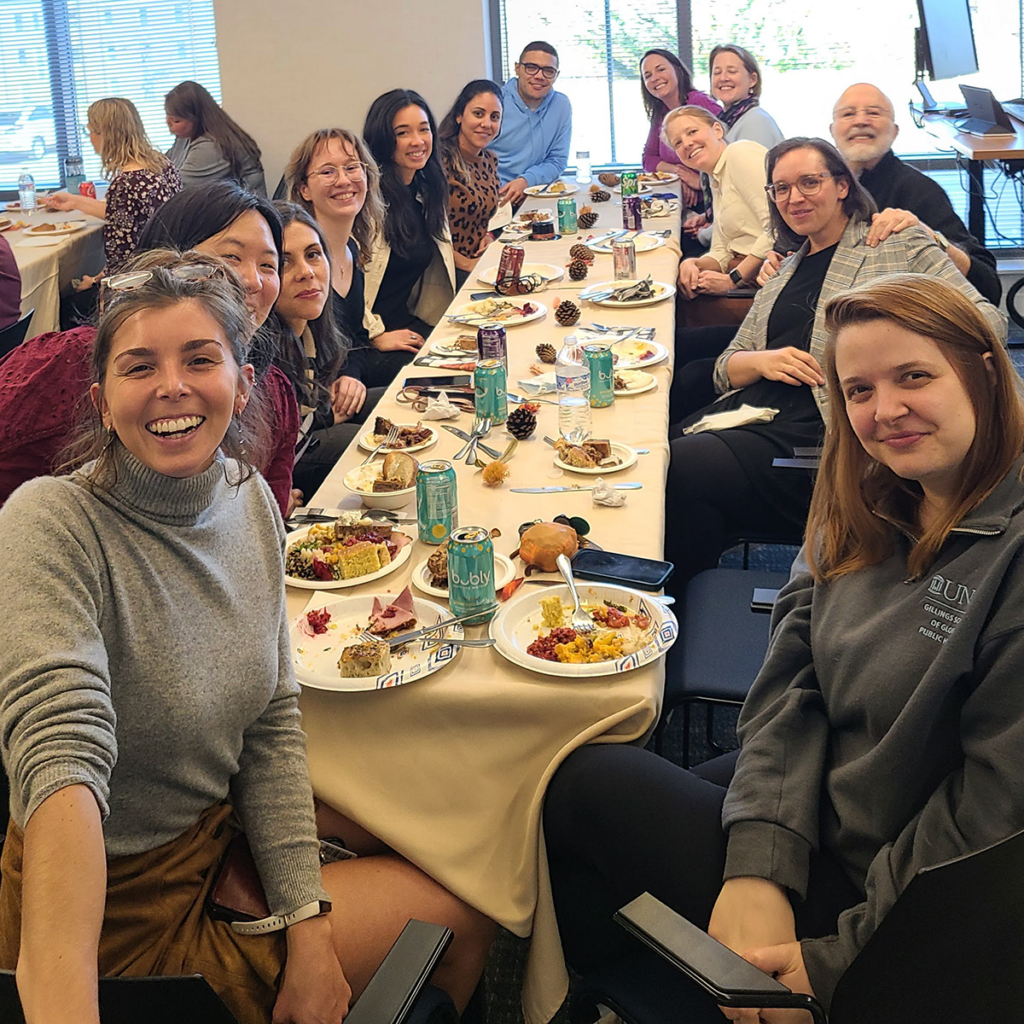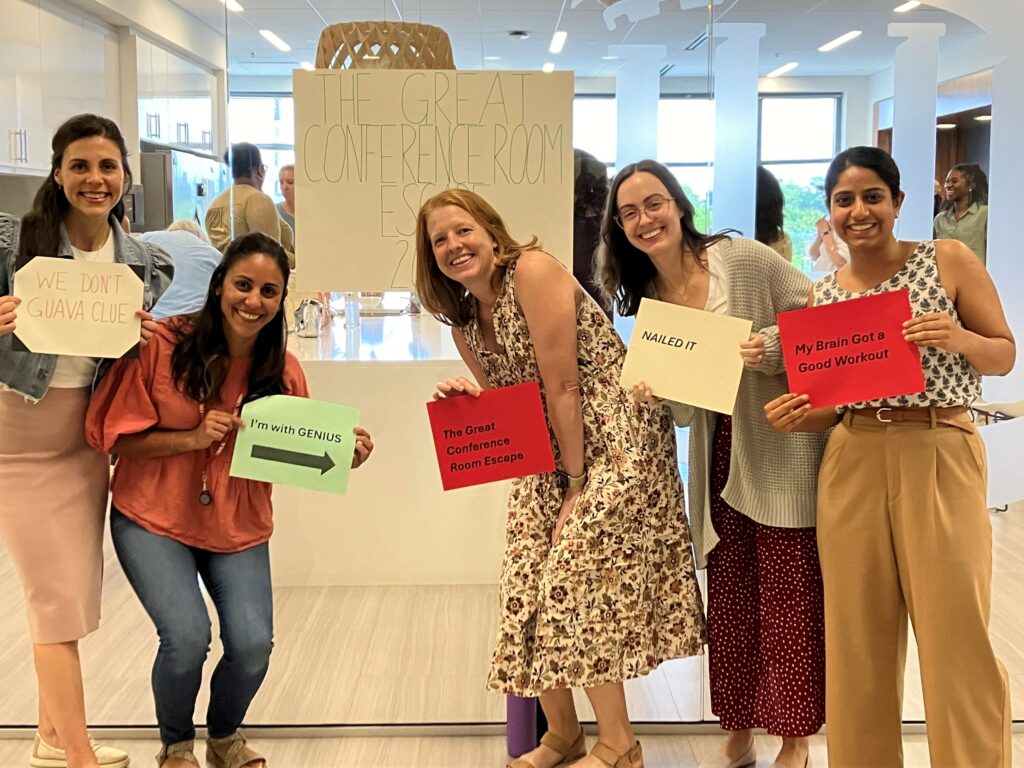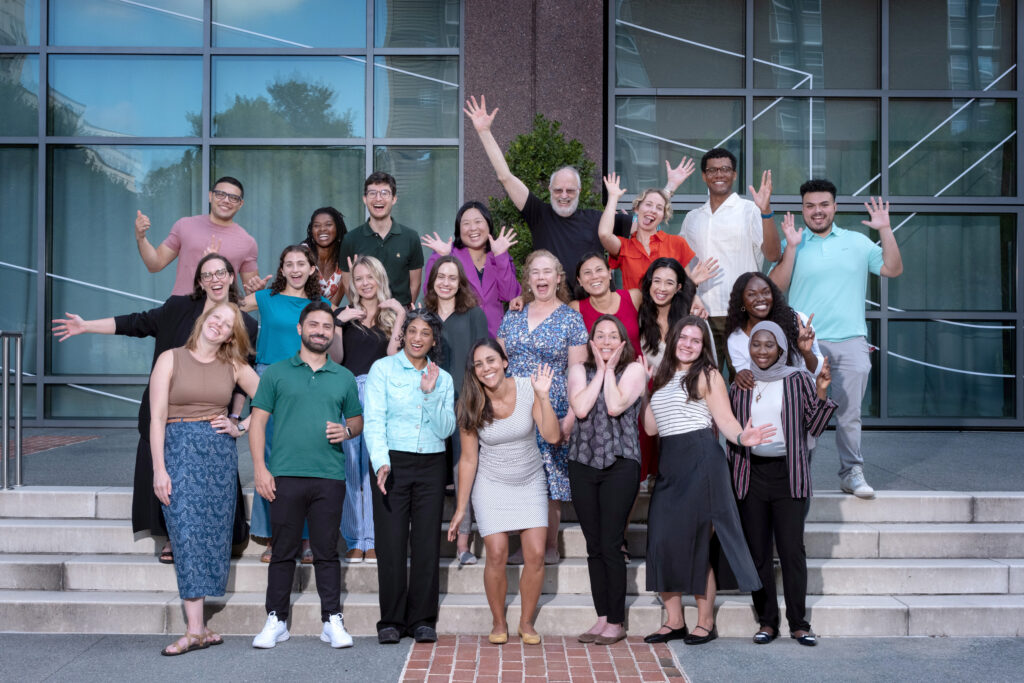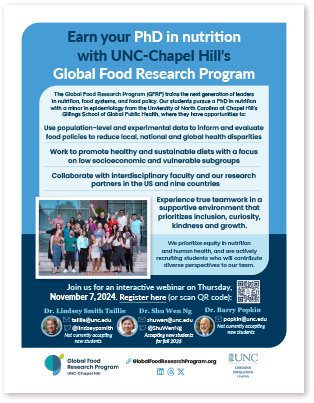Global Food Research Program (GFRP) students pursue a PhD in nutrition, with a minor in epidemiology, from the University of North Carolina at Chapel Hill’s Gillings School of Global Public Health — one of the top schools of public health in the country.
Our program’s core focus is using population-level data to inform and evaluate food policies to promote health equity. Our goals are to improve the health of people and the planet and to train the next generation of leaders in nutrition, food systems, and food policy.
GFRP is a true team effort: Dr. Lindsey Smith Taillie and Dr. Shu Wen Ng serve as primary mentors/advisors, with additional mentoring from Dr. Barry Popkin. We also collaborate closely with faculty in other departments within Gillings, such as health behavior, health policy and management, and epidemiology, with UNC-Chapel Hill’s economics and public policy departments and the Hussman School of Journalism and Media.
Research questions our students have asked include:
- Did intake of sugary drinks change after South Africa’s sugar-sweetened beverage tax? If so, what were the mediating factors of this change?
- Did Chile’s innovative policy limiting junk food marketing to children change advertising on TV? On packages? How did it influence children’s diets?
- In the US, what do healthy and sustainable diets look like? What policies can be used to shift diets to improve health and prevent climate change?
- How are state-level food and social welfare policies in the US associated with disparities in nutritional quality of food purchases?
We also use controlled experiments and models to inform policy design, using our real-life miniature convenience store, the UNC Mini-Mart, an online supermarket, and simulation models using real-world data.
Example questions we have asked include:
- What types of eco-labels are best for informing consumers about the health and environmental harms associated with certain foods?
- Do warning labels reduce intentions to purchase sugary drinks and junk food in Colombia? Is there a pro-equity impact for low-educated consumers?
- How might fiscal policies like taxes on unhealthy ultra-processed foods and beverages and/or targeted incentives for healthy whole foods to low-income populations improve food purchases and diets and address existing nutritional disparities?
At GFRP, we cultivate a highly collaborative team environment. Students have the opportunity to work with co-mentors, participate in small and large lab group meetings with other GFRP staff, present their work, and mentor undergraduate students.
We also love to have fun in and out of the office! We do exercise challenges, an annual team NCAA basketball bracket, volunteer together on service projects, and have cooking competitions — in addition to the best potluck parties around.
We focus on equity. A goal of our program is to increase equity in nutrition and human health for under-represented groups in the US and globally. All our projects have a strong equity focus, and our team is committed to inclusive excellence by embracing a variety of perspectives and lived experiences.



Want to know more?
Email Drs. Shu Wen Ng, Lindsey Smith Taillie and/or join us for an interactive webinar about our research program on Thursday, November 7th from 12:30–1:30 p.m. EST. Register here for the webinar.
Download a 1-page flyer to print and share
INFORMATIONAL WEBINAR

Thursday, November 7
12:30–1:30 p.m.

